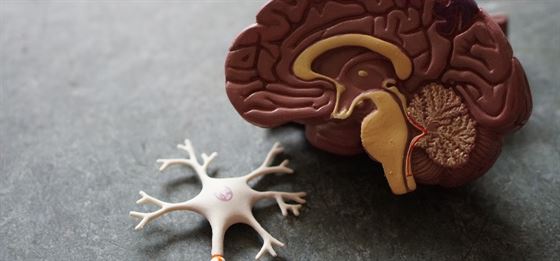
What is Cognitive Behavioural Therapy and How Can It Help You?

Mental health is something that's not always easy to talk about and it's even harder to take the steps necessary for healing. However, if you are looking for an effective and proven method of improving your mental health, look no further than cognitive behavioural therapy (CBT). CBT is a type of therapy that helps you identify and challenge negative thinking patterns to improve behaviour and overall well-being. Let’s dive into what CBT is all about!
What is Cognitive Behavioural Therapy?
Cognitive behavioural therapy (CBT) also called, 'talk therapy' is a form of therapy which helps people learn how to think differently about situations, which then helps them behave differently. CBT focuses on the present rather than the past and it also takes a very practical approach – it's goal-oriented and helps you develop strategies for specific problem areas like reducing anxiety or improving relationships. According to a study, CBT is 50-75% effective for overcoming depression and anxiety.
Core Principles of CBT
The cognitive model is based on the way a person thinks and the thoughts which occupy their mind. Aaron Beck also called the father of CBT believed there are three levels of cognition:
1. Core beliefs
2. Dysfunctional assumptions
3. Negative automatic thoughts
These cognitive processes contribute to how we experience our world and they are often interconnected. For example, a person's core beliefs, such as “I am bad” can lead to dysfunctional assumptions that they will make the wrong choices and negative automatic thoughts, about how others perceive them. The goal of CBT is to help people identify these cognitive processes and learn how to manage them effectively.
CBT is based on four core principles:
1. Cognitive Restructuring
Changing negative thought patterns and beliefs about yourself, others and the world, in general, can be difficult, but it is possible with CBT. Cognitive restructuring helps people identify and challenge their negative thoughts so they can replace them with more realistic thoughts and expectations.
2. Behavioural strategies
This includes learning how to manage your emotions by developing coping skills, such as relaxation techniques, problem-solving strategies and more.
3. Exposure
Gradually exposing yourself to anxiety-provoking situations until you can manage them without distress is another key part of CBT.
4. Self-Monitoring
Keeping track of your thoughts and behaviours so you can identify patterns or triggers for certain emotions helps you better manage them. Self-monitoring also helps you gain insight into how your thoughts, feelings and behaviours are interlinked.
How Does Cognitive Behavioral Therapy Work?
The process of CBT involves working with a therapist who will help you understand how your thoughts are influencing your behaviour. You will learn how to become aware of your thought patterns and how they may be contributing to unhealthy behaviours or emotions. This may involve learning how to challenge irrational thoughts or developing problem-solving skills. Over time, you can develop more effective coping mechanisms and manage stress or anxiety effectively.
5 Ways Cognitive Behavioural Therapy Can Help You
CBT can help with a range of issues, such as depression, anxiety, anger management, stress management and more. It can also be used to improve relationships or work performance. CBT is particularly effective for people who are struggling with negative thought patterns that are affecting their lives.
1. Helps You Challenge Negativity
Negative thought patterns and beliefs can be difficult to break. With the help of a therapist, CBT can help you challenge and change these beliefs by questioning them. It also helps you understand cognitive distortions such as catastrophizing, personalization and all-or-nothing thinking. Gaining a fresh perspective on these thought patterns can give you the freedom to make positive changes in your life.
2. Improve Self-Esteem
By teaching you how to identify and challenge unhelpful thoughts and beliefs about yourself, CBT can help improve self-esteem. You will begin to develop a more positive view of yourself which in turn can help boost your self-confidence and feelings of worthiness.
3. Manage Difficult Emotions
CBT is an effective way to learn how to better manage difficult emotions such as anger or depression. Through identifying and challenging unhelpful thoughts, CBT can help you gain greater control over your emotions.
4. Reduce Unhelpful Behaviours
CBT is a great tool for helping to reduce problematic behaviours. Through working with a therapist, you can learn new strategies for dealing with difficult situations that don't involve resorting to unhealthy behaviours.
5. Improve Relationships
CBT can also help improve relationships by teaching you how to communicate in a more effective manner, as well as how to better manage your emotions within the context of your relationships. This can help you develop healthier and more meaningful relationships with those around you.
Cognitive behavioural therapy is an incredibly powerful tool when it comes to improving mental health and well-being. It has been used effectively by those dealing with depression, anxiety, phobias, eating disorders, substance abuse issues, trauma, relationship problems and more! If you're feeling overwhelmed by life's challenges or simply want some extra support in managing stress and anxiety then consider giving CBT a try for yourself! With the right therapist guiding you every step along the way, this therapeutic method could be just what you need for finding true mental health.
Articles
Build your awareness and get inspired with our researched articles on how you can strengthen your well-being
Popular Topics
An OTP has been sent to the email address
provided.
Please check your Inbox and Spam folders.

What Would You Like to Speak with a Specialist About?
Mental Fitness Journey starts Now!
Chearful Connects you with Top-tier Qualified Wellness specialists for the Price of a cup of Coffee!

Next Steps
- A Client Team member will reach out to you to schedule a session with the most suitable specialist.
- You will receive an email with a 10% Discount Code* for your 1st session.
- We invite you to Explore the Platform & Sign Up today! *Upto a maximum of $10 discount on a session purchased




 2286 Read
2286 Read




.jpg)







.png)
.png)

.jpg)

.jpg)




.jpg)


































.jpg)

.jpg)
.jpg)










































